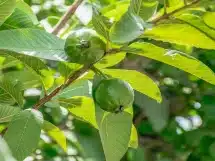While tea is considered to be a go-to drink for coping with headaches, getting relief from migraine pain can be a challenge. It’s important to seek timely medical care.
A viral YouTube video in Telugu language claims that migraine can be managed within a minute by drinking hot tea made of honey, lemon, and turmeric. The video has garnered more than 24k views.
While tea is considered to be a go-to drink for coping with headaches, getting relief from migraine pain can be a challenge. The commonest cause of recurrent, severe headache, migraine can not only result in debilitating pain, but also many unpleasant symptoms, such as nausea, vision changes, and sensitivity to light and sound.
There are many home remedies for migraine that are popular on social media. As far as the instant remedy made of honey, lemon, and turmeric is concerned, Dr. Maulik Patel, a consultant physician based in Ahmedabad, India, is unconvinced about its effectiveness.
“The curcumin in turmeric may lower your blood sugar or blood pressure. If you take medications for high blood pressure, or diabetes, you should consult with your doctor before adding turmeric tea to your diet. Honey contains potassium and magnesium, which can increase blood flow to the brain. But there’s no evidence to support its effect on migraine,” he explains.
Although some studies show that curcumin, the active component in turmeric, may help reduce the frequency and severity of migraine attacks, we need further trials to conclude that it can be an effective treatment. Moreover, the chemical composition of the supplements in these studies are very different from those in the home-made tea comprising honey, lemon, and turmeric.
Doctors typically recommend lifestyle changes, such as regularising meals and sleep, to reduce the frequency of migraine attacks. Based on the diagnosis and medical history, some form of medication or treatment may be prescribed in patients with chronic migraine. It’s important to seek timely medical care.


















Add Comment